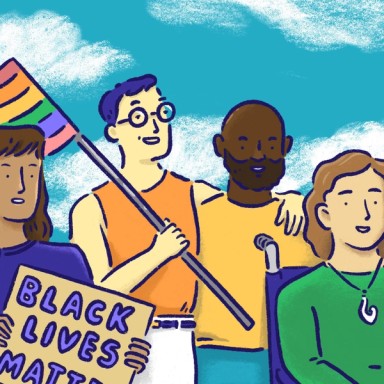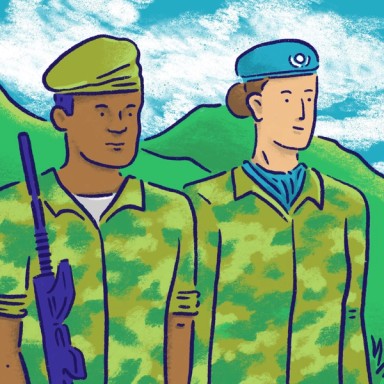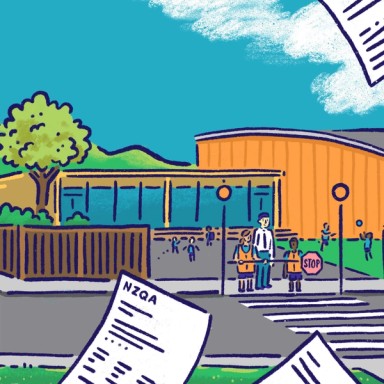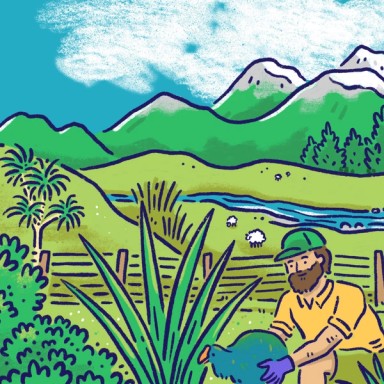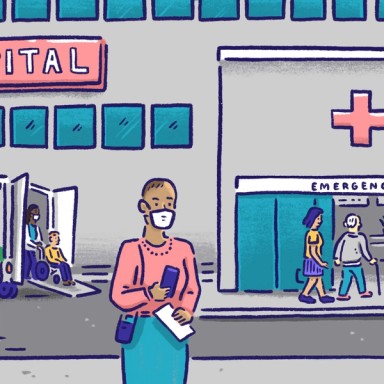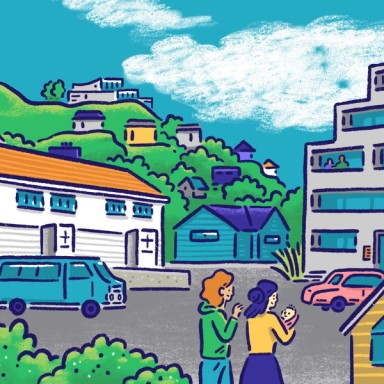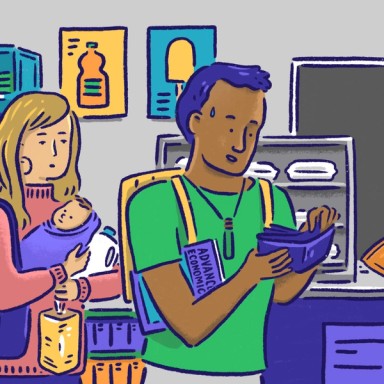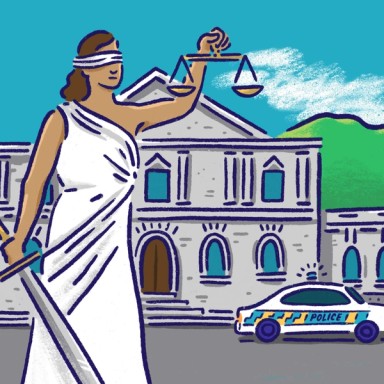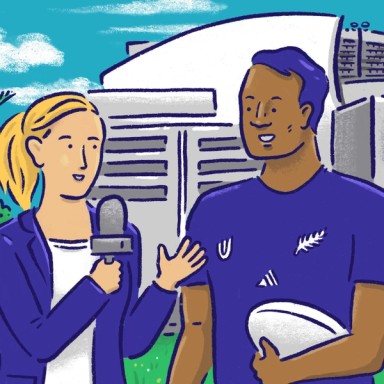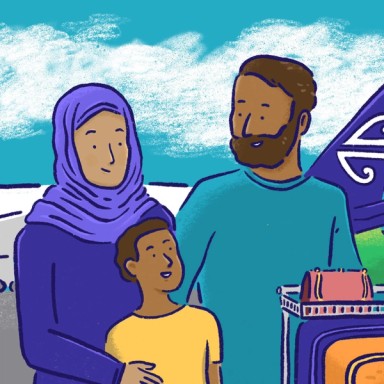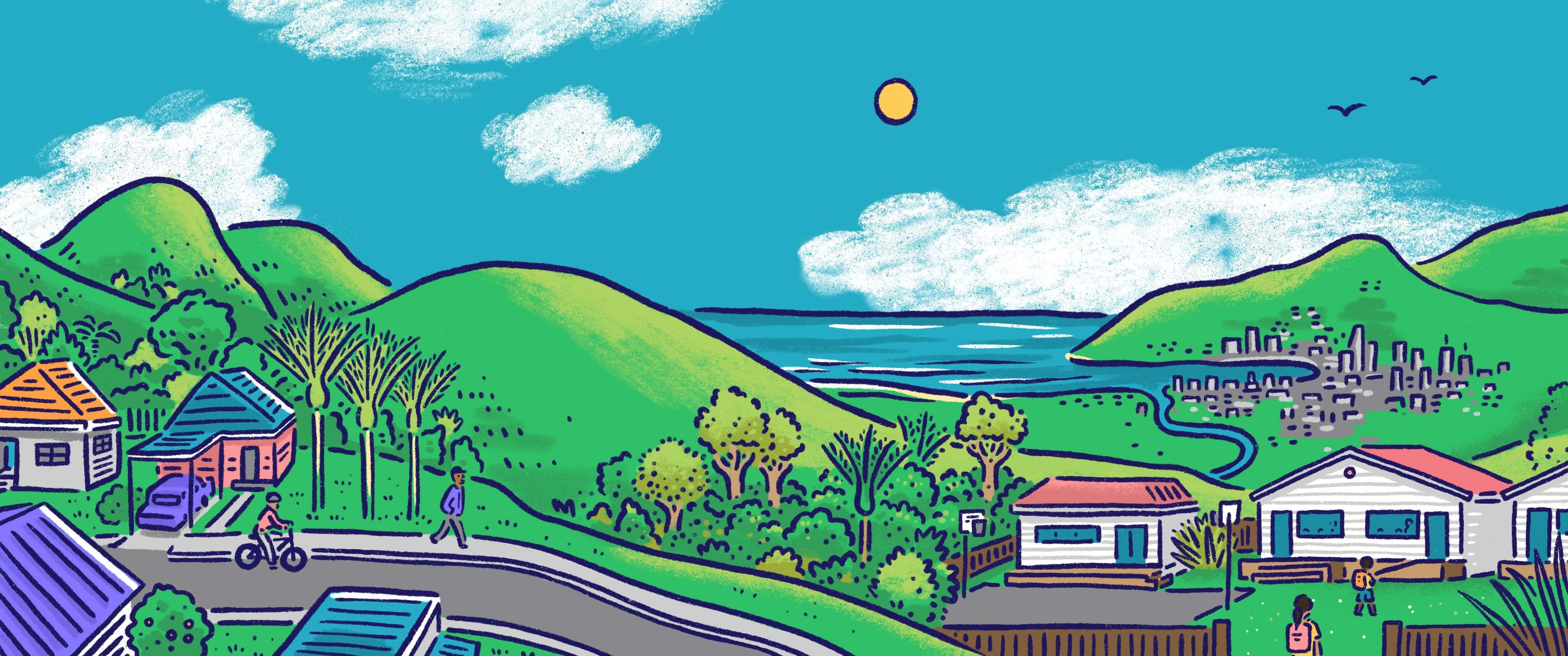
Party vote
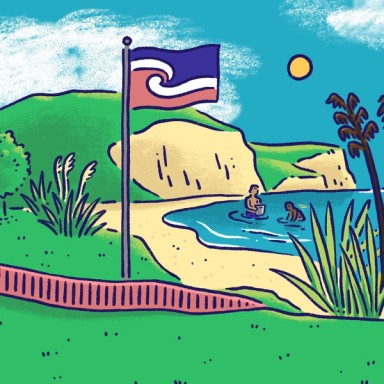
Te ao Māori
Te Tiriti o Waitangi is the foundational document for government in NZ and it remains central to current politics. Te reo Māori is more widely heard in public and taught in schools, tikanga Māori is being recognised by the legal system, and many historical Tiriti claims have been settled. But political struggle continues, as recent debates over co-governance show. For parties on the left, co-governance represents the next step in honouring the commitments made under te Tiriti, while some parties on the right say it is a threat to democracy.

Te ao Māori
Te Tiriti o Waitangi is the foundational document for government in NZ and it remains central to current politics. Te reo Māori is more widely heard in public and taught in schools, tikanga Māori is being recognised by the legal system, and many historical Tiriti claims have been settled. But political struggle continues, as recent debates over co-governance show. For parties on the left, co-governance represents the next step in honouring the commitments made under te Tiriti, while some parties on the right say it is a threat to democracy.
Develop credit system to encourage conservation on private land
Continue to invest in Te Haeata, the online database of Treaty commitments
Investigate a fast-track process for recognition of Māori landmarks and street names
Create a process for community-led rāhui
Increase funding and support for statistical data about whānau Māori
Consider funding iwi and hapū to protect and display tāonga tūturu
Continue to invest in housing for Māori
Support Māori to better access funds to install sustainable infrastructure on marae and papakainga
Introduce a papakainga planning standard
Make funding for Māori health providers equitable
Promote Te Reo Māori in early childhood education
Expand te reo Māori education programmes
Encourage government agencies and organisations to develop Te Reo Māori language development plans
Increase funding for Māori language revitalisation strategies
Invest in the growth of the Māori food and fibre export sector
Continue to fund free Māori trade training
Continue to fund Matariki events and celebrations
Continue to fund Te Matatini
Continue to support Māori Crown relations – Te Arawhiti
Encourage local councils and boards to create Māori wards
Retain Te Aka Whai Ora Māori Health Authority
Investigate support for Wānanga
Ensure that career services are available to Māori students
Continue working with iwi and hapū to include local tikanga and pūrakau in the curriculum
Continue to support Māori media
Consider supporting Māori language community initiatives
Increas funding for Te Reo Māori revitalisation
Support indigenous tourism opportunities
Continue programme to provide young Māori with a path out of criminal offending
Continue programmes to lower the proportion of Māori in the corrections system
Continue to support Jobs for Nature projects
Protect Māori commercial and customary fishing rights
Support iwi and hapū-led solutions to protect sites affected by sea level rises
Consider a fund for Māori climate change researchers and scientists
Recognise Māori expertise in indigenous development in connection with international projects
Protect indigenous intellectual property rights in trade agreements
Continue supporting progressive home ownership funds for Māori
Explore low interest loan finance and grants for housing projects for whānau
Provide more opportunities for whānau visits in prisons using new technology
Improve study and employment options for Māori health workers
Remove regulatory barriers to allow Māori to build on their own land
Establish an inquiry into land dispossession due to breaches of Te Tiriti
Remove the bar on historical Te Tiriti claims
Allow the Waitangi Tribunal to make non-binding recommendations regarding private land
Prevent Māori land from being forcibly taken under the Public Works Act
Abolish perpetual leases on Māori land
Provide free mental health services for children and young people
Safeguard the rights of tamariki Māori to maintain connection to their whakapapa
Pass a Climate Change Adaptation Bill
Ensure climate adaptation planning affirms tino rangatiratanga
Reform the Reserves Act to incorporate te Tiriti o Waitangi
Properly resource Māori oral health services
Establish a citizens’ assembly to consider constitutional reform
Ensure resource management or local government system changes uphold tino rangatiratanga
Create a national food strategy
Support indigenous agricultural practices
Increase funding for indigenous forests
Uphold Treaty rights in relation to indigenous forests on public land
Implement Te Mana o te Wai for water management
Increase funding to protect natural wetlands
Reduce social and economic disparities faced by wāhine Māori
Strengthen Te Aka Whai Ora Māori Health Authority
Train healthcare workers to reduce biases
Work with unions, employers and Māori to transition to a low emissions economy
Prioritise the Māori economy in developing low-emissions jobs
Fund marae and Māori organisation-led te reo Māori education initiatives
Fund tikanga Māori and te reo Māori education
Integrate mātauranga Māori concepts into decision making around natural resource use
Resource marae as community hubs
Reduce risk of sudden infant death among Māori
Clarify the role of Te Tiriti in local government
Deliver mental health and addiction programmes targeted at Māori
Ensure individuals with Māori heritage are eligible for citizenship
Train public servants in te Tiriti o Waitangi and te reo Māori
Facilitate the return of wrongfully alienated land to tangata whenua
Increase funding for the Waitangi Tribunal
Abandon the 'large natural grouping' method in Treaty settlements
Implement the United Nations Declaration on the Rights of Indigenous Peoples
Adjust bereavement leave entitlements
Increase funding for Māori to build on their own land
Establish an ocean commission to provide advice and set targets for marine systems
Create a fund for developing mātauranga and tikanga-based ocean management tools
Expand marine protected areas to cover 30 percent of NZ's oceans
Stop using te reo Māori names for government departments
Abolish Te Aka Whai Ora Māori Health Authority
Withdraw from the UN Declaration on the Rights of Indigenous People
Remove Te Mana o te Wai from freshwater resource consenting
Ensure community policing initiatives are adequately funded
Abolish Te Aka Whai Ora Māori Health Authority
Establish a Māori legal aid service
Establish a Māori criminal justice system based on tikanga
Change NZ's name to Aotearoa by 2026
Replace all place names with their original Māori names by 2026
Establish a Māori Standards Authority
Increase funding for Te Aka Whai Ora
Introduce a Māori health card
Establish a kaupapa Māori mental health service
Make Māori eligible for cancer screenings 10 years earlier
Increase funding to Māori cultural and artistic organisations
Establish a Toi Māori entity to support Māori culture and art
Establish a Māori Parliament
Overhaul the Treaty of Waitangi settlement process
Return conservation land to whānau, hapū and iwi
Entrench Māori electorate seats
Appoint a Parliamentary Commissioner for the Treaty of Waitangi
Require all legislation and regulation to have Treaty impact statements
Establish a Māori sporting body
Establish authority to oversee Māori language funding and audit providers
Fund Māori farmers to transition from emissions-intensive farming
Fund Māori owned community energy projects
Acknowledge Māori rights over fresh water
Ensure that water rights are allocated fairly
Remove the British royal family as head of state
Develop a national Māori strategy for renewable energy and clean technology
Phase out industrial coal burning by 2030
Establish climate change adaptation plans with whānau, hapū and iwi
Commit all Māori to the Māori electoral roll
Prevent referenda from overturning decisions to establish Māori wards
Oppose research or commercialisation of indigenous plants without whānau, hapū and iwi consent
Oppose genetically engineered food
Increase intellectual property protections for indigenous seeds
Establish entity to enforce Māori rights and access to food
Create a contestable fund to support community food production and distribution
Set aside more urban and rural land for farming
Provide scholarships for young people to study food science, marine biology or agriculture
Fund regenerative and organic farming training
Support the creation of Māori supermarket chains
Support people selling home grown food at the community level
Build 2000 houses on Māori land over two years
Allocate half of new social housing to Māori
Ban freehold land sales to foreign investors
Provide free primary health, dental care and medication to low income families
Support mātauranga Māori models of health
Establish kaupapa Māori legal units at community law centres
Adopt all Waitangi Tribunal recommendations relating to the justice system
Replace the Independent Police Conduct Authority with entity with Māori representation
Allow all prisoners to vote
Enable mental health professionals to attend emergency mental health incidents
Increase funding for Whānau Ora and drug abuse prevention
Establish a Māori child protection agency
Stop newborns from being put into state care without family, hapū or iwi consent
Review Oranga Tamariki's child protection protocols
Establish a Māori disability authority
Involve Māori disability organisations in policy development
Increase funding for Māori providers of the Enabling Good Lives programme
Improve access to health services for disabled people
Aim to ensure antenatal screening programmes are not biased towards termination if disability is diagnosed
Make Māori sign language an official language
Increase the number of users of Māori sign-language
Enable Māori disabled people to access cultural spaces and activities
Enable Māori disabled people to participate in sport
Oppose co-governance
Abolish the Human Rights Commission
Abolish Te Puni Kōkiri
Replace the Office for Crown-Māori Relations with an Office of Treaty Settlements
Remove a public holiday
Hold a referendum on the interpretation of the Treaty of Waitangi
Repeal all or part of the Pae Ora (Healthy Futures) Act
Repeal the Treaty of Waitangi clause in the Oranga Tamariki Act
Remove Ngāi Tahu representatives from the Canterbury Regional Council
Remove government agencies' focus on the Treaty of Waitangi
Prevent the implementation of Māori seats on Auckland Council
Abolish Te Aka Whai Ora Māori Health Authority
Ignore the UN Declaration on the Rights of Indigenous Peoples
Expand water supply exemption to include suppliers of fewer than 30 users
Remove Te Mana o te Wai from freshwater resource consenting
Abolish Māori wards
Develop credit system to encourage conservation on private land
Continue to invest in Te Haeata, the online database of Treaty commitments
Investigate a fast-track process for recognition of Māori landmarks and street names
Create a process for community-led rāhui
Increase funding and support for statistical data about whānau Māori
Consider funding iwi and hapū to protect and display tāonga tūturu
Continue to invest in housing for Māori
Support Māori to better access funds to install sustainable infrastructure on marae and papakainga
Introduce a papakainga planning standard
Make funding for Māori health providers equitable
Promote Te Reo Māori in early childhood education
Expand te reo Māori education programmes
Encourage government agencies and organisations to develop Te Reo Māori language development plans
Increase funding for Māori language revitalisation strategies
Invest in the growth of the Māori food and fibre export sector
Continue to fund free Māori trade training
Continue to fund Matariki events and celebrations
Continue to fund Te Matatini
Continue to support Māori Crown relations – Te Arawhiti
Encourage local councils and boards to create Māori wards
Retain Te Aka Whai Ora Māori Health Authority
Investigate support for Wānanga
Ensure that career services are available to Māori students
Continue working with iwi and hapū to include local tikanga and pūrakau in the curriculum
Continue to support Māori media
Consider supporting Māori language community initiatives
Increas funding for Te Reo Māori revitalisation
Support indigenous tourism opportunities
Continue programme to provide young Māori with a path out of criminal offending
Continue programmes to lower the proportion of Māori in the corrections system
Continue to support Jobs for Nature projects
Protect Māori commercial and customary fishing rights
Support iwi and hapū-led solutions to protect sites affected by sea level rises
Consider a fund for Māori climate change researchers and scientists
Recognise Māori expertise in indigenous development in connection with international projects
Protect indigenous intellectual property rights in trade agreements
Continue supporting progressive home ownership funds for Māori
Explore low interest loan finance and grants for housing projects for whānau
Provide more opportunities for whānau visits in prisons using new technology
Improve study and employment options for Māori health workers
Remove regulatory barriers to allow Māori to build on their own land
Establish an inquiry into land dispossession due to breaches of Te Tiriti
Remove the bar on historical Te Tiriti claims
Allow the Waitangi Tribunal to make non-binding recommendations regarding private land
Prevent Māori land from being forcibly taken under the Public Works Act
Abolish perpetual leases on Māori land
Provide free mental health services for children and young people
Safeguard the rights of tamariki Māori to maintain connection to their whakapapa
Pass a Climate Change Adaptation Bill
Ensure climate adaptation planning affirms tino rangatiratanga
Reform the Reserves Act to incorporate te Tiriti o Waitangi
Properly resource Māori oral health services
Establish a citizens’ assembly to consider constitutional reform
Ensure resource management or local government system changes uphold tino rangatiratanga
Create a national food strategy
Support indigenous agricultural practices
Increase funding for indigenous forests
Uphold Treaty rights in relation to indigenous forests on public land
Implement Te Mana o te Wai for water management
Increase funding to protect natural wetlands
Reduce social and economic disparities faced by wāhine Māori
Strengthen Te Aka Whai Ora Māori Health Authority
Train healthcare workers to reduce biases
Work with unions, employers and Māori to transition to a low emissions economy
Prioritise the Māori economy in developing low-emissions jobs
Fund marae and Māori organisation-led te reo Māori education initiatives
Fund tikanga Māori and te reo Māori education
Integrate mātauranga Māori concepts into decision making around natural resource use
Resource marae as community hubs
Reduce risk of sudden infant death among Māori
Clarify the role of Te Tiriti in local government
Deliver mental health and addiction programmes targeted at Māori
Ensure individuals with Māori heritage are eligible for citizenship
Train public servants in te Tiriti o Waitangi and te reo Māori
Facilitate the return of wrongfully alienated land to tangata whenua
Increase funding for the Waitangi Tribunal
Abandon the 'large natural grouping' method in Treaty settlements
Implement the United Nations Declaration on the Rights of Indigenous Peoples
Adjust bereavement leave entitlements
Increase funding for Māori to build on their own land
Establish an ocean commission to provide advice and set targets for marine systems
Create a fund for developing mātauranga and tikanga-based ocean management tools
Expand marine protected areas to cover 30 percent of NZ's oceans
Stop using te reo Māori names for government departments
Abolish Te Aka Whai Ora Māori Health Authority
Withdraw from the UN Declaration on the Rights of Indigenous People
Remove Te Mana o te Wai from freshwater resource consenting
Ensure community policing initiatives are adequately funded
Abolish Te Aka Whai Ora Māori Health Authority
Establish a Māori legal aid service
Establish a Māori criminal justice system based on tikanga
Change NZ's name to Aotearoa by 2026
Replace all place names with their original Māori names by 2026
Establish a Māori Standards Authority
Increase funding for Te Aka Whai Ora
Introduce a Māori health card
Establish a kaupapa Māori mental health service
Make Māori eligible for cancer screenings 10 years earlier
Increase funding to Māori cultural and artistic organisations
Establish a Toi Māori entity to support Māori culture and art
Establish a Māori Parliament
Overhaul the Treaty of Waitangi settlement process
Return conservation land to whānau, hapū and iwi
Entrench Māori electorate seats
Appoint a Parliamentary Commissioner for the Treaty of Waitangi
Require all legislation and regulation to have Treaty impact statements
Establish a Māori sporting body
Establish authority to oversee Māori language funding and audit providers
Fund Māori farmers to transition from emissions-intensive farming
Fund Māori owned community energy projects
Acknowledge Māori rights over fresh water
Ensure that water rights are allocated fairly
Remove the British royal family as head of state
Develop a national Māori strategy for renewable energy and clean technology
Phase out industrial coal burning by 2030
Establish climate change adaptation plans with whānau, hapū and iwi
Commit all Māori to the Māori electoral roll
Prevent referenda from overturning decisions to establish Māori wards
Oppose research or commercialisation of indigenous plants without whānau, hapū and iwi consent
Oppose genetically engineered food
Increase intellectual property protections for indigenous seeds
Establish entity to enforce Māori rights and access to food
Create a contestable fund to support community food production and distribution
Set aside more urban and rural land for farming
Provide scholarships for young people to study food science, marine biology or agriculture
Fund regenerative and organic farming training
Support the creation of Māori supermarket chains
Support people selling home grown food at the community level
Build 2000 houses on Māori land over two years
Allocate half of new social housing to Māori
Ban freehold land sales to foreign investors
Provide free primary health, dental care and medication to low income families
Support mātauranga Māori models of health
Establish kaupapa Māori legal units at community law centres
Adopt all Waitangi Tribunal recommendations relating to the justice system
Replace the Independent Police Conduct Authority with entity with Māori representation
Allow all prisoners to vote
Enable mental health professionals to attend emergency mental health incidents
Increase funding for Whānau Ora and drug abuse prevention
Establish a Māori child protection agency
Stop newborns from being put into state care without family, hapū or iwi consent
Review Oranga Tamariki's child protection protocols
Establish a Māori disability authority
Involve Māori disability organisations in policy development
Increase funding for Māori providers of the Enabling Good Lives programme
Improve access to health services for disabled people
Aim to ensure antenatal screening programmes are not biased towards termination if disability is diagnosed
Make Māori sign language an official language
Increase the number of users of Māori sign-language
Enable Māori disabled people to access cultural spaces and activities
Enable Māori disabled people to participate in sport
Oppose co-governance
Abolish the Human Rights Commission
Abolish Te Puni Kōkiri
Replace the Office for Crown-Māori Relations with an Office of Treaty Settlements
Remove a public holiday
Hold a referendum on the interpretation of the Treaty of Waitangi
Repeal all or part of the Pae Ora (Healthy Futures) Act
Repeal the Treaty of Waitangi clause in the Oranga Tamariki Act
Remove Ngāi Tahu representatives from the Canterbury Regional Council
Remove government agencies' focus on the Treaty of Waitangi
Prevent the implementation of Māori seats on Auckland Council
Abolish Te Aka Whai Ora Māori Health Authority
Ignore the UN Declaration on the Rights of Indigenous Peoples
Expand water supply exemption to include suppliers of fewer than 30 users
Remove Te Mana o te Wai from freshwater resource consenting
Abolish Māori wards
Policies
Compare the parties’ positions on the key issues this election
Candidates
See the electorate candidates running in your local area
Parties
Learn about each political party, its leaders and candidate list
Compare the candidates running in your local area
Each part of the country is represented in Parliament by an electorate MP. We've asked every candidate about their priorities for your community and why they deserve your vote.

